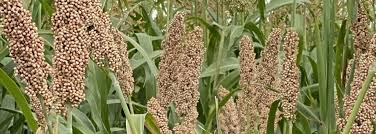The National Animal Production Research Institute (NAPRI), Ahmadu Bello University, Zaria, Kaduna State, has disclosed that it has begun silage-making with forage sorghum as an alternative for maize. The farming activity, which is essentially in preparation for dry season feeds and feeding to tackle hunger and enhance sustainable livestock production while the national agricultural show in Abuja has made it possible for farmers to present cattle breeds suitable for dairy farming.
According to experts, silage is a fermented feed made from fresh forage crops by-products that are acidified and preserved through fermentation, which can be fed to ruminants such as cattle, sheep, and goats. The utilisation of forage sorghum, as an alternative for maize in silage making, is a new technology developed by the institute to reduce competition for maize between livestock and humans, as a way of enhancing the productivity of smallholder livestock system in Nigeria, making the institute to become an advocate for livestock farmers to enhance silage production, using non-conventional or alternative feed ingredients that are more accessible and cheaper.
The Assistant Director, Extension and Linkages of NAPRI, Dr. Ishiaku Muhammad, has called on farmers to make use of silage-making to conserve excess feed for utilisation when it is scarce, as it provides a high energy source and helps preserve nutrients during the dry season.
Muhammad disclosed that research conducted by scientists at NAPRI had shown that feeding silage to dairy cows increases their milk yield significantly and that the performance of ram is higher by 6.90kg when fed silage of sorghum almum and lablab at 70:30 per cent mixtures. “As a research institute, NAPRI is committed to training both local farmers and stakeholders on climate smart livestock productivity and resilience systems. Feed and fodder take the lead by 70-80 per cent of the total cost of livestock production.
“Therefore, the search for alternative feed becomes paramount in any production system for sustainability”, he said. Yunusa enjoined all stakeholders to ensure strong support for small-holder farmers with inputs, forage choppers, silage bags to enhance value addition, and create local and international market for silage in Nigeria.
In a related development, at this year’s national agricultural show in the Federal Capital Territory in Abuja, some livestock farmers have presented a number of cattle breeds, which they said, would be good for those intending to start a dairy farm. One of such exhibitors is the Maliya Market and Farm, located along the Abuja-Keffi expressway, which has an array of different breeds of animals for different purposes and uses.

“Farmers, who want to start dairy, for example, could invest as little as N2 million to acquire two young cows, which the farmer can use for further breeding and better milk yields”, he said. Another farm official, who identified himself as Ahmed Kuru, noted that the breeds produce better milk and have increased the farm’s supply of milk. Kuru added that a young cow of about two years goes for up to N1 million.
He revealed further that “a farmer, who does not have a good bull to cross can buy some and leave it with them to pick them up when they are pregnant. If the farmer is lucky that one of the newborns is a male, it will solve the problem of looking for a male for mating”. Kuru informed that the farmer would have to pay for the feeding of the cows until such a time he or she picks them up.
“You don’t have to start with many animals; you can start with just one, two, or three, depending on your financial strength. But my advice is to experiment with one or two because something you don’t have good knowledge of, you have to start small first”, he added. In another development, the Federal Ministry of Livestock Development has received expressions of interest from Egypt and Denmark to partner with Nigeria to develop its livestock sector. The Egyptian Ambassador to Nigeria, Mohamed Fouad, congratulated the Minister of Livestock Development, Alhaji Idi Maiha, on his appointment and expressed Egypt’s readiness to collaborate with Nigeria on livestock. “We are ready to share our expertise with Nigeria to modernize its livestock sector”, Fouad said.
He said with that, Egypt’s expertise in breeding, feed production, and animal health would benefit the nation’s livestock sector. The Danish Ambassador to Nigeria, Jens Ole Bach Hansen, also led a delegation of top executives from leading Danish livestock companies on a working visit to the ministry, where Hansen lauded the Nigerian President Bola Tinubu for establishing the ministry, saying “The creation of the ministry is indicative of a deep understanding of the needs of Nigeria and the strategic vision to address them”.
On his part, the new minister, Idi Maiha, gave the country’s openness to good collaborations that would improve the livestock sector’s capacity to meet local and international demands. Maiha said the ministry was working on establishing advanced laboratories, enhancing indigenous breeds, and achieving sufficiency in feed and fodder cultivation. The proposed partnerships with Egypt and Denmark are expected to contribute significantly to the development of Nigeria’s livestock sector.
The collaborations would further provide opportunities for knowledge transfer, capacity building, and investment in the sector. Additionally, the partnerships would bring about the creation of jobs and stimulate economic growth in rural areas, contributing to the country’s overall economic development by ensuring that benefits of the partnerships are equitably distributed among key stakeholders.




1 Comment
Feed production such as silage should be encouraged